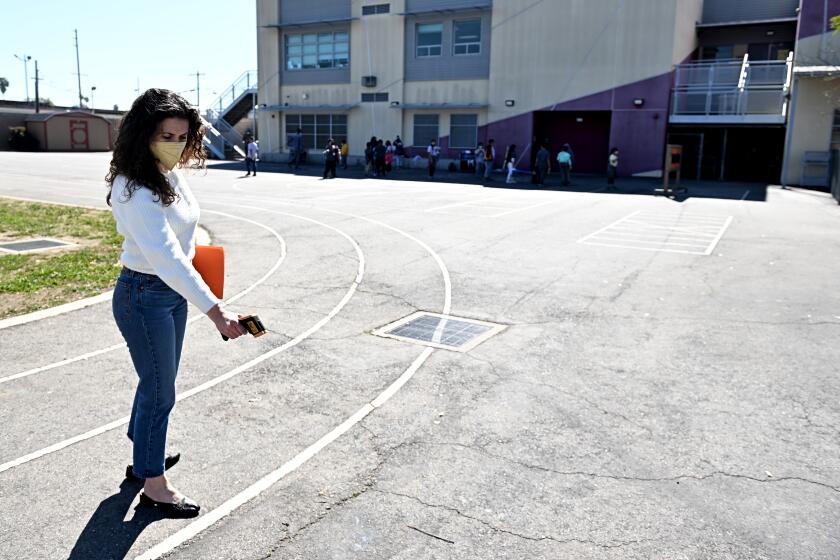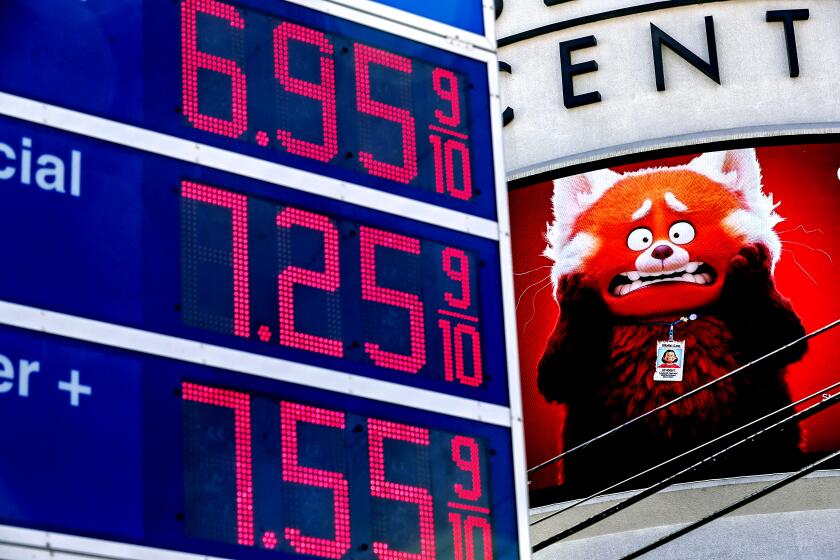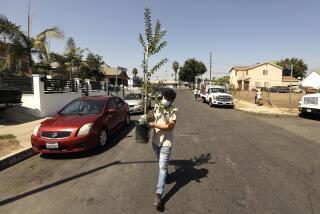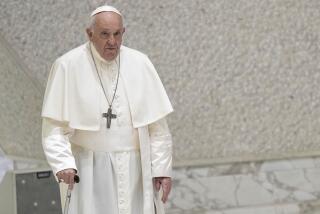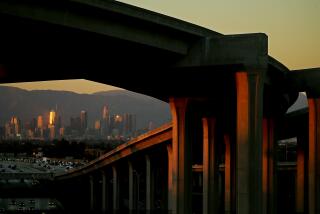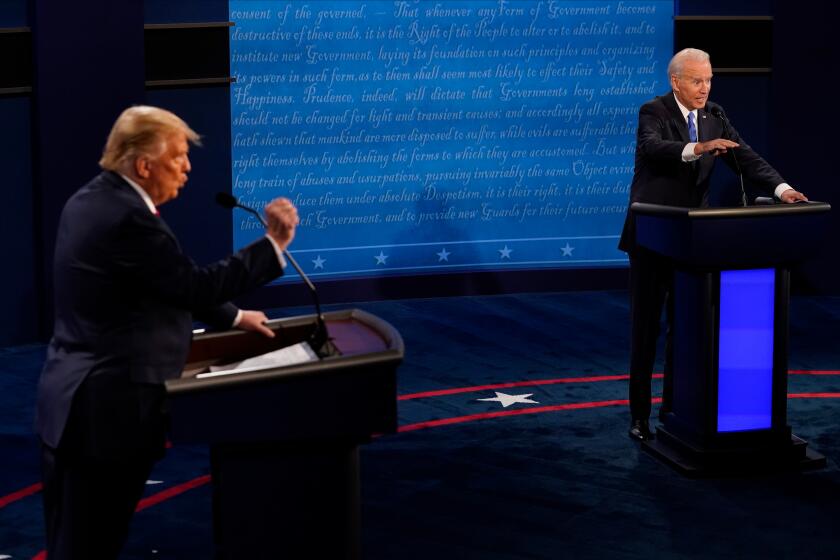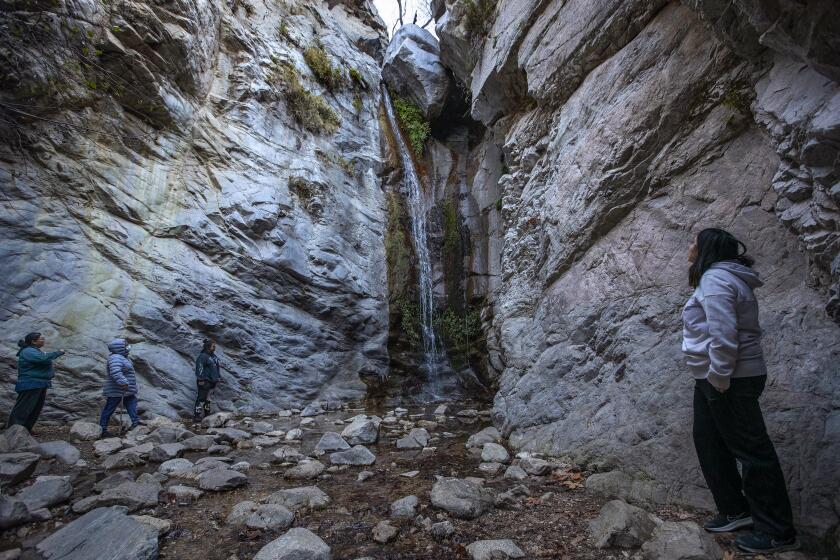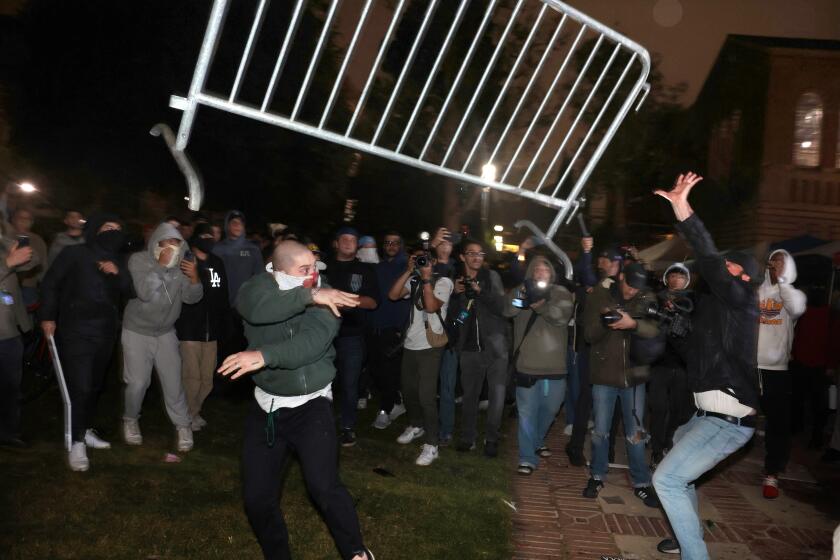Editorial: Why do candidates for L.A. mayor have so little to say about climate change?
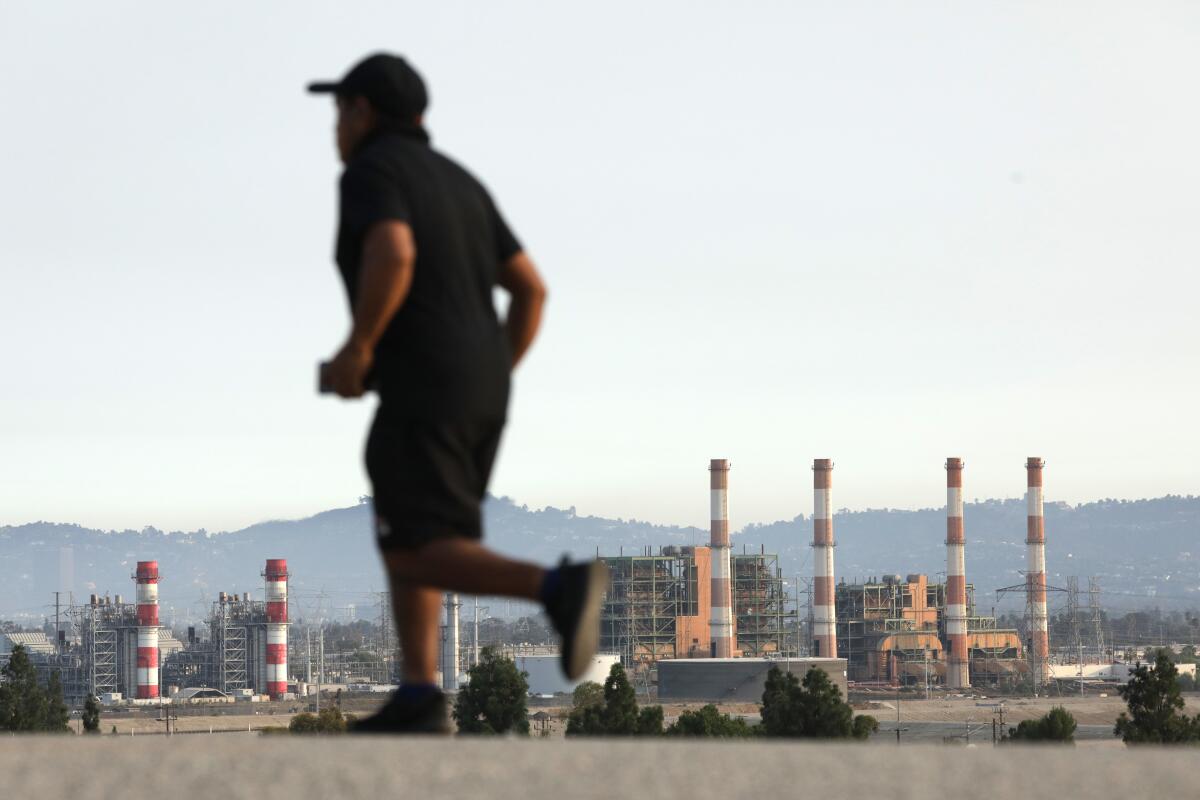
Los Angeles leaders have a history of making big pledges on climate change and the environment that are more ambitious than what they actually deliver.
But in the race to succeed Eric Garcetti as mayor, candidates are hardly even talking about climate and environmental issues and are instead focusing almost exclusively on housing, homelessness and crime.
The Times’ Dakota Smith, Benjamin Oreskes and David Zahniser have reported that many of the mayoral candidates, including Rep. Karen Bass, City Councilman Kevin de León and developer Rick Caruso, don’t even mention climate change on their campaign websites.
L.A. needs a mayor that not only talks about climate change and environmental issues but also has clear and ambitious plans for accelerating action to reduce emissions and keep Angelenos safe from the escalating effects of a warming planet. In just the last two years, L.A. has experienced its highest temperature on record, its worst air pollution since the 1990s, and a surge in diesel emissions from the ports of L.A. and Long Beach that is worsening smog. We’re deep into a severe drought, and as the warming climate makes precipitation less predictable and constrains water supplies, Los Angeles ratepayers are likely to see water-use restrictions and rate hikes.
But the climate crisis has received little attention during mayoral forums and debates, and when it has come up, candidates have offered few new ideas.
Los Angeles trails more than 50 California cities that have enacted policies to ban or discourage gas hookups from new buildings.
At the second televised mayoral debate, climate change didn’t come up until more than 40 minutes in, when De León praised Garcetti’s work to transition to renewable electricity and reduce carbon emissions and smog that L.A. children are breathing.
Bass agreed with De León, praising Garcetti for moving forward on transportation and climate change. Caruso said the mayor’s sustainability plan was one of the good things he did, “and now the question is, are we going to hold the departments in this city accountable” for meeting its goals? City Atty. Mike Feuer credited Garcetti’s work to “put us on a path toward sustainability with regard to water and energy and transportation.” (Feuer does have a climate plan on his campaign website, as do candidates Mel Wilson and Craig Greiwe.)
But the candidates had little to say about what they’d do differently and, for the most part, pivoted to other issues, like homelessness and public safety. Those are important topics, too. But the candidates’ lack of focus on environmental policy gives the impression that these growing challenges are not their priority. This does a disservice to voters, who deserve to know what their next mayor intends to do about an array of environmental problems that are being fueled and compounded by global warming.
Children shouldn’t be forced to learn and play in hot, asphalt-covered, fenced-in campuses, especially in neighborhoods that already lack park space.
Garcetti established a detailed plan with a long list of environmental targets, called L.A.’s Green New Deal. But he won’t be around to be held accountable for goals that include increasing the percentage of zero-emission vehicles in the city to 80% by 2035, boosting tree canopy in the highest-need areas by at least 50% by 2028 and having “zero days of unhealthy air quality by 2025.”
Complaints about politicians overlooking climate issues are sadly nothing new. President Biden barely even mentioned climate change during his first State of the Union speech. But this is California, a state that prides itself on its environmental standards and climate leadership. Though more state and federal climate action is urgently needed, the mayor’s office can actually do a lot on its own.
The mayor controls the Port of Los Angeles, one of the region’s biggest polluters that must switch to zero-emission trucks and equipment to slash climate and health-damaging pollution. The mayor also controls the Department of Water and Power, the nation’s largest municipal utility, which has a crucial role in advancing water conservation and cleaning the electrical grid. What will the candidates do with that authority?
Why shower money on car owners — even people with electric vehicles will get debit cards — and give short shrift to people who don’t own a car?
Who would they appoint to represent the city’s interests on the boards of the Metropolitan Water District of Southern California, the South Coast Air Quality Management District and other powerful agencies responsible for the water we consume and the air we breathe? How would they use the city’s power over land use to fight environmental injustice in communities of color that suffer from a lack of trees and park space and too much pollution from diesel trucks, oil refineries and other industries? Do they support banning natural gas hookups in new buildings to cut fossil fuel emissions, and if so, by what date?
What would the candidates do to ensure that L.A. does not run out of water, and should our water supply take a back seat to environmental preservation? Do they support or oppose completing the proposed tunnel to bring Sacramento River water south? Are they pleased or disappointed with the pace of taxpayer-funded projects to capture, clean and reuse stormwater, and to make better use of the giant San Fernando Valley aquifer, which could provide enough drinking water for more than 800,000 Angelenos but is currently polluted? How would they revitalize the L.A. River?
These are just a few of the environmental questions the city will face during the term of the next mayor, and they should be answered by all candidates seeking this office.
More to Read
A cure for the common opinion
Get thought-provoking perspectives with our weekly newsletter.
You may occasionally receive promotional content from the Los Angeles Times.

